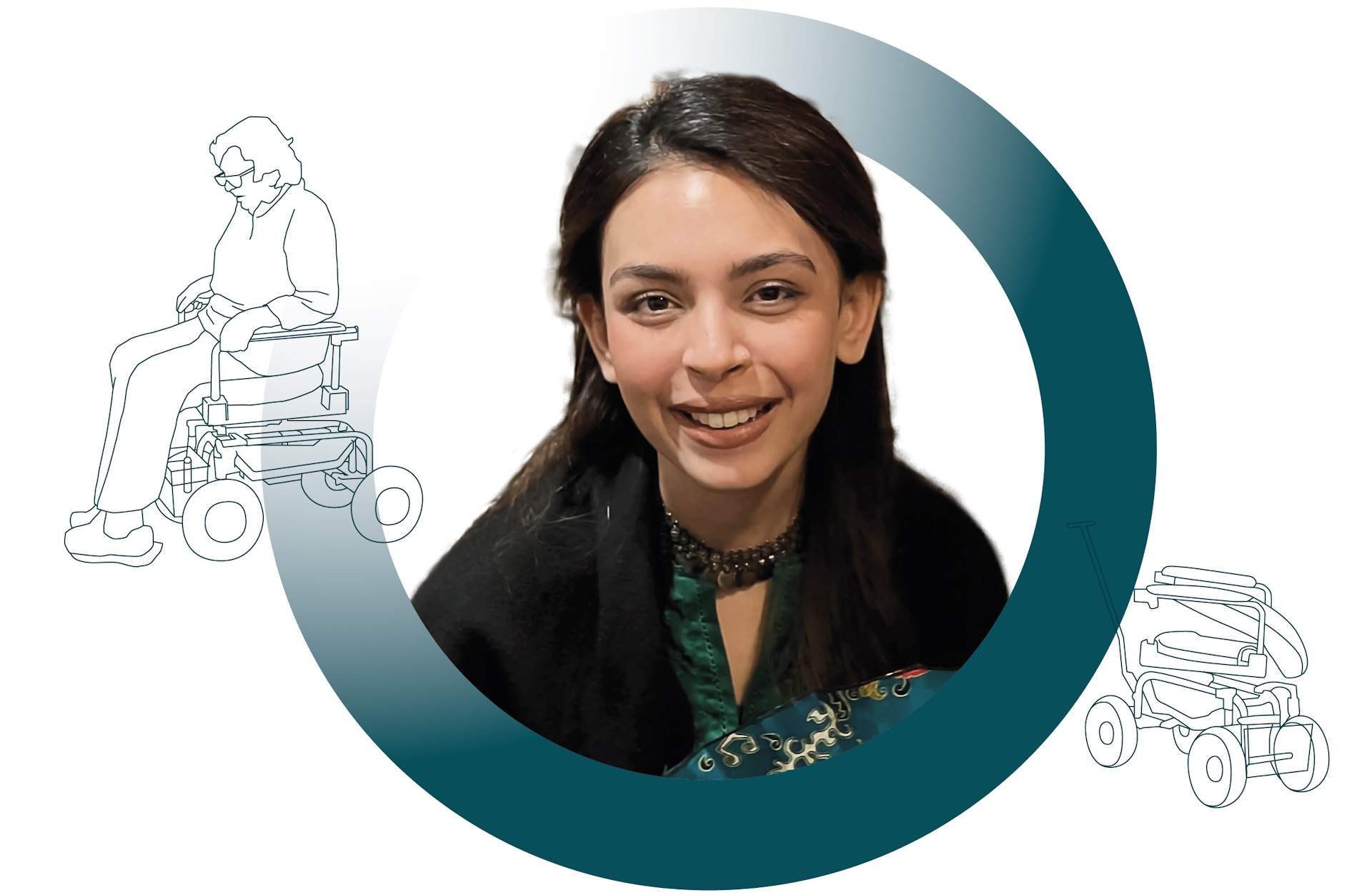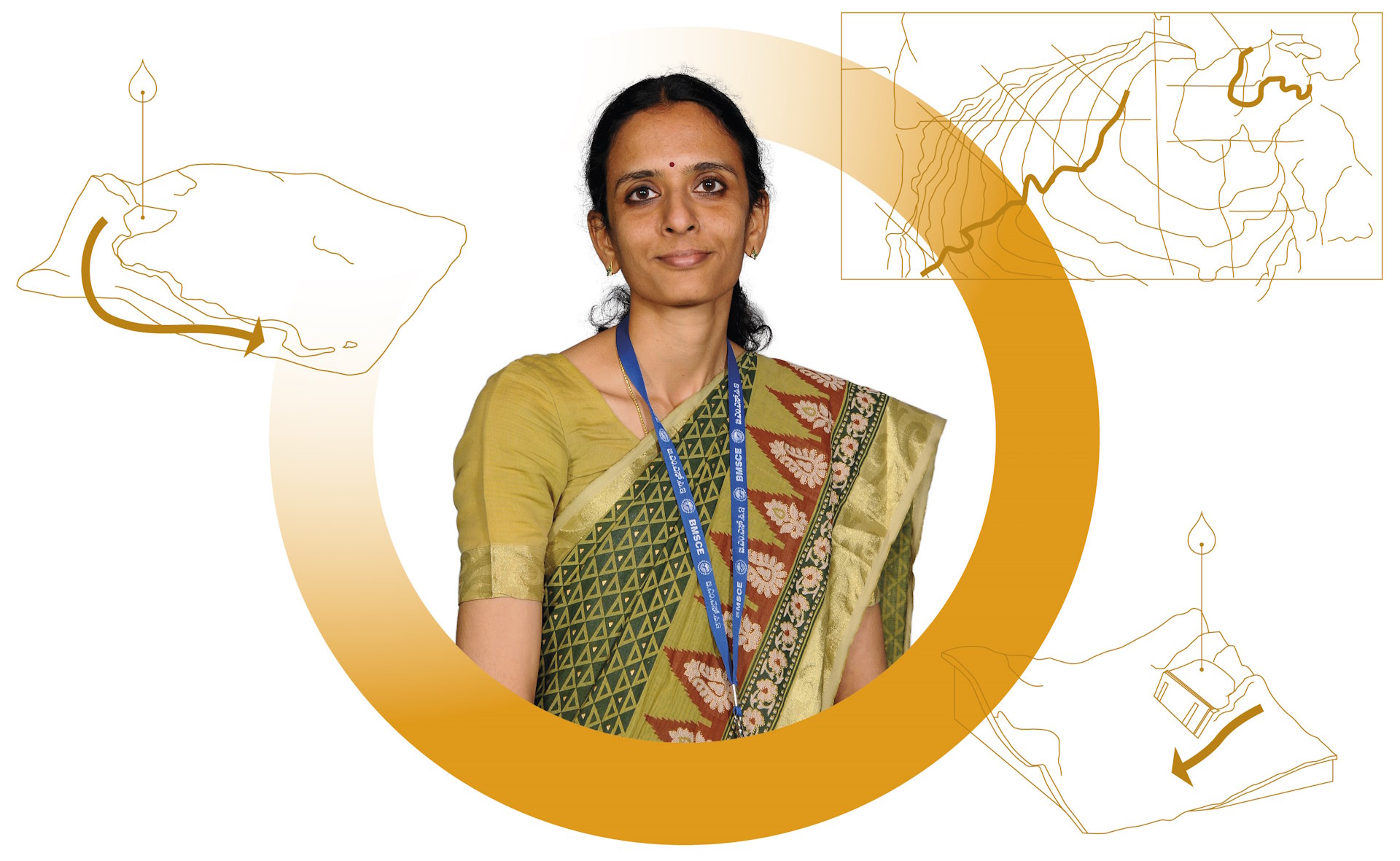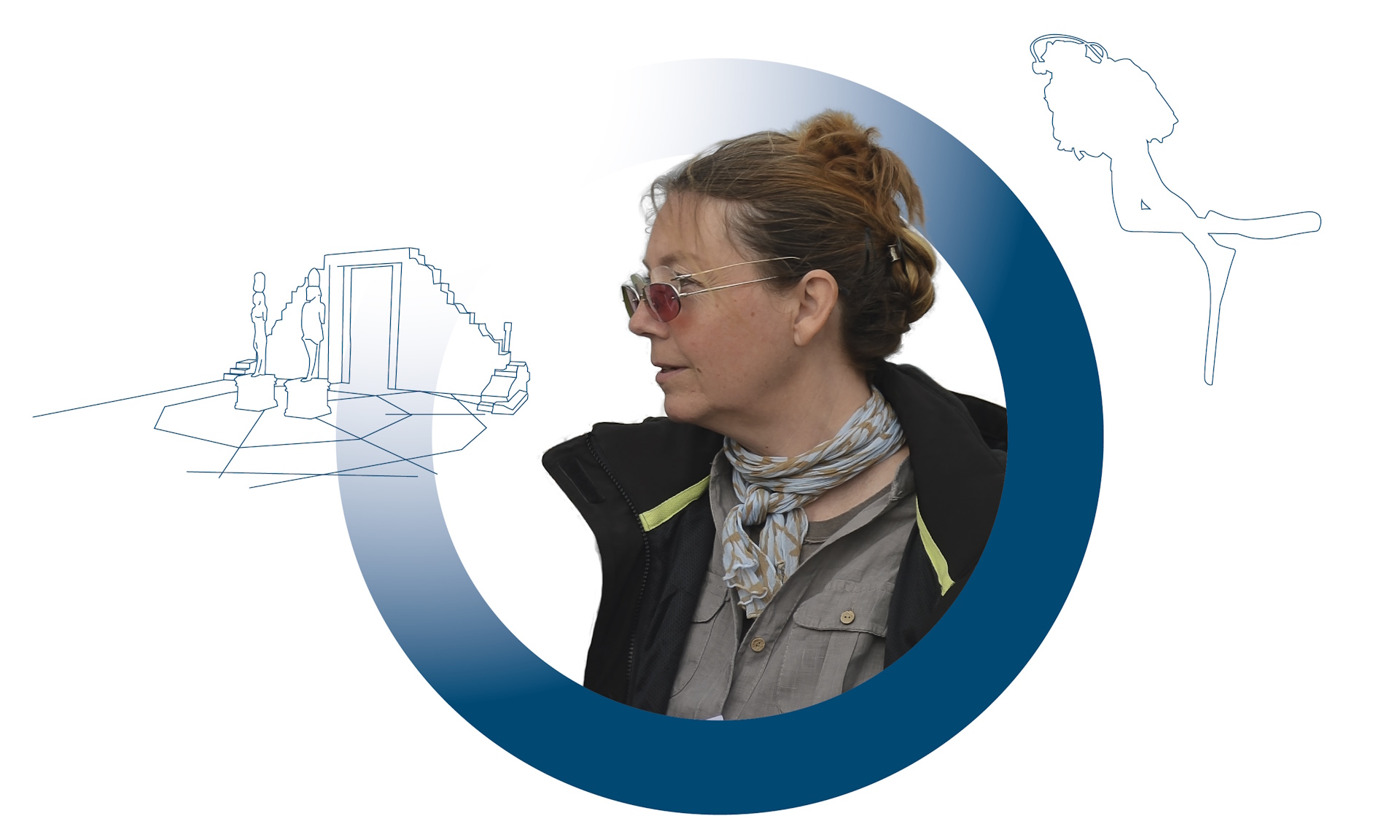Women in Science: beyond barriers
For the International Day of Women and Girls in Science, we took the time to converse with women project leaders and students that La Fondation Dassault Systèmes supports around the world, to gain insights into the current state and future prospects for women in the science and technology community.
February 11 marks the United Nations’ International Day of Women and Girls in Science. While an ongoing concern, this observance serves as a reminder that women play a vital role in the science and technology communities, demanding better global recognition, representation, and engagement.
Despite the progress made in recent decades, only one in three researchers worldwide is a woman today – and this drops to one in five in cutting-edge fields like AI. Female researchers also contend with shorter, less well-compensated careers; they are often overlooked for promotion and their work is underrepresented in high-profile journals. In the tech world, the situation isn’t much better: women make up only 28% of engineering graduates and 40% of graduates in computer science and informatics.
This persistent gender disparity in 2024 is a call to action to address the many barriers that women scientists and engineers continue to face around the world. Raising girls’ awareness about STEM education and careers from an early age, fighting against self-censorship, deconstructing gender stereotypes, creating a spark and igniting interest via inspiring women role models are some of the avenues to make progress happen in these fields. This is an everyday concern for us at La Fondation Dassault Systèmes. This also involves supporting education projects for girls from disadvantaged backgrounds and isolated rural areas – such as ASPIRA in India, Girlstart in the US, as well as OSE inGÉ and Les « Cordées de la Réussite » in Europe, to empower them to pursue successful scientific studies and careers.
Three distinct journeys, three unique perspectives on breaking barriers
Let’s delve into the perspective of women in science, with Urva Ishtiaq, a Bachelor of Science Aerospace and Mechanical Engineering major student at Clarkson University, USA; Dr. Reshmi Devi T.V, Assistant Professor in the Department of Civil Engineering at the B.M.S. College of Engineering in India; and Isabelle Hairy, an architect-archaeologist at the prestigious National Center for Scientific Research (CNRS) in France. Whether it’s helping the elderly live better, understanding the behavior of water during flood or rebuilding historic masterpieces in the virtual world: all three are working on groundbreaking projects with the support of La Fondation Dassault Systèmes.

Urva Ishtiaq: “You don’t look like you’re in STEM!”
Urva Ishtiaq is a Bachelor of Science student majoring in Aerospace and Mechanical Engineering at Clarkson University, New York. Born and raised in Pakistan, she received her education at a British school back home before coming to the US for college. As part of her studies, Urva is working on a project within the Assistive + Intelligent Device FAB-rication (AIDFab) Facility, supported by La Fondation Dassault Systèmes, which brings together students and professors from different disciplines to develop assistive and intelligent devices to improve the autonomy of aging people in the community. “I want to make a difference for the people around me”, she shared with us. After contributing to design and build a cart that would enable an elderly lady to continue gardening, she felt her work was truly useful and she now wants to join an industrial company to keep this feeling alive.
Upon graduating next spring, Urva anticipates entering the “real world” with excitement, but also a sense of apprehension about the gender gap she began to foresee as a student.
Raised by a father - who went on to become an officer in the Navy - and a mother who both studied STEM as undergraduates and later pursed their MBA, Urva found her path among submarines, ships, helicopters and aerospace. From a very young age, she saw STEM as an extraordinary world of unknowns to explore, which made her want to find out more. However, even with a supportive family and background, she soon realized that gender stereotypes would somehow always be in the background of her career-to-be, especially in such a “male-associated” sector. “Maybe Western countries are different”, she used to think back in Pakistan. Yet her US experience showed that stereotypes persist wherever in the world - at different levels, of course - even in the most advanced countries.
“You don’t look like you’re in STEM!” remarked a fellow student as she was taking her A-levels, as if being feminine or having your hair down was incompatible with studying engineering. According to Urva, women are unfortunately still judged on their appearance first. “If you're too feminine, if you paint your nails or wear colorful clothes, you’re not taken seriously for your work or your thoughts”. On the other side, as “women don't like to get their hand dirty”, they might face resistance when seeking involvement in hands-on activities.
For Urva, these gender biases are ingrained in us from childhood. “Dolls and puzzle games shape a person in a certain way”, she explains. “Tackling these issues will require changing the culture at its roots”, she says, for example by paying attention to what we say to girls, starting to expose girls and boys alike to science from an early age through exploratory events and activities, or encouraging girls to take an interest in STEM through specific programs.
"I feel like I'm always trying to do more and to please people so that they think I'm doing a good work"
The gender gap is for her also exacerbated by a lack of accessible examples and role models in the scientific community to inspire women to stand out. As a result, women are more likely to censor themselves due to a lack of self-confidence. “I feel like impostor syndrome exists in every woman’s life”, Urva says. “Putting women role models forward is very critical”, she notes.
Yet Urva remains optimistic about the situation. First, because she is fortunate to currently work in a very inclusive and attentive team, where she can flourish as a woman but, above all, as an engineer. Secondly, because of the education she received, which has always encouraged her to pursue her ambitions. “There’s always a way: hard work pays off”, she says. Just as her parents used to tell her, she wants to encourage girls who want to make the same educational choices: “If you believe you can do it, go do it now!”

Dr. Reshmi Devi T.V: "I was lucky to be raised as a child, not as a girl"
Dr. Reshmi Devi T.V. is an Assistant Professor in the Department of Civil Engineering at the B.M.S. College of Engineering in Bangalore, India. She is the head of their Water Research Lab, whose research focuses on irrigation management, surface water hydrology, modeling of hydrological systems, water resources planning and management (including AI and decision support systems), climate change impact assessment, among others. She has published over 15 papers in peer-reviewed journals and national and international conferences. Supported by La Fondation Dassault Systèmes, she currently works on a project that develops interactive learning content on predictive flood simulation, hazard mapping, and mitigation prediction.
While one woman in three researchers globally might seem low to Europeans, Reshmi Devi noted how high it seemed to her compared with the situation in India. In the world’s most populous country, girls typically do not pursue higher education, or if they do, they often drop out at some point to prioritize family.
However, Reshmi Devi was fortunate to have the right support and family system to back her ambitions throughout her life. As a little girl, she already loved science and mathematics, and her parents nurtured her interests. “I was lucky not to be raised as a girl but as a child”, she shares. Her parents encouraged her to pursue studies, get a job, and become independent. Being good at math, engineering became an obvious choice. When she started college, she initially thought that civil engineering would be an area exclusively for men, but upon entering her engineering course, she felt no such restriction. “Whatever men can do, we were able to do!”, she says. Going forward, Reshmi Devi anticipated encountering obstacles in her journey but found none.
Unfortunately, Reshmi Devi’s story doesn’t mirror every Indian girl’s experience. Many families don’t want to send girls away – whether for safety reasons or cultural family duties, and gender disparity is deeply ingrained in the country’s society. “This perspective was handed down to us, whether we want it or not. In our culture, women are supposed to take care of their family, period”, she says. This perspective explains that when women have to choose between career and family, regardless of their position, the choice is premade: they go back and take care of their relatives.
Yet the culture is evolving in the country, with numerous programs combating biases and encouraging girls and women to get a job and pursue careers, have professional aspirations, and become independent.
"As long as you respect yourself and stick to your values, others will automatically respect you"
What Indian girls need now are more role models. “I was fortunate to have a woman supervisor; in fact: somebody I could copy”, says Reshmi Devi, emphasizing the importance of having a source of inspiration to ignite a spark and shape a career. How would she manage time? How would she balance family and work? Answers to these questions were crucial to providing perspectives to the student she was.
She was also part of a women researchers’ group at the University. “That gave me a lot of confidence, knowing that, as women, we could manage: we were capable of doing things!”
While societal change must begin at its roots, Reshmi Devi has a message full of hope for young girls dreaming of STEM or research in India: “Whatever you decide, you can do it.” She hopes indeed to help them broaden their horizons, find inspiration and see that yes, it is entirely possible. “Don’t stay in one place, explore the world, experience, get out, and make mistakes”, she concludes.

Isabelle Hairy: “Being a woman has never impeded my pursuits”
French architect and archaeologist, research engineer for the Orient & Méditerranée Joint Research Unit and research associate at the Centre d'Etudes Alexandrines (CEAlex), a research lab under CNRS supervision, since 2013, Isabelle Hairy spent 30 years excavating in Egypt. Recently back in France, she continues to oversee the underwater excavation of the Qaitbay site of Alexandria. La Fondation Dassault Systèmes is specifically supporting her latest project leveraging 3D technology to merge archaeological data, iconography and textual data to construct a virtual twin of the Pharos of Alexandria, one of the Seven Wonders of the World, with the help of Dassault Systèmes volunteers and their expertise. In her words, “the contribution of 3D technology to underwater excavation has revolutionized the way we work”.
While Lara Croft may be overshadowing Indiana Jones in common fantasy, Isabelle confides that history and archeology remain male-dominated domains, guided by patriarchal rules, and unfortunately, little improvement has been seen in recent decades. Careers have variable geometries, recognition is challenging to attain, and women still grapple with what she calls “archeo-sexism”.
Whether it’s derogatory remarks or glances from coworkers, a lack of respect for privacy, or jokes about physical capabilities, excavation sites can be a sexist nightmare for women in many places. But the gender gap also manifests more subtly, such as with specific professions women are confined to in archaeology: arts, ceramics, jewelry, etc. And while more and more women are entering the field, especially in France, they’re still not often promoted to management positions.
Isabelle also notes that despite evolving mentalities in this domain, women still succumb to social pressure and family constraints that men don't face. Their time is not the same as men’s, and women are often marginalized if they decline invitations to conferences or worksites, for example.
"A woman's time is absolutely not a man's time"
As a result, even though women in science possess “extremely strong and intense creative skills”, they very often hide it under a “cloak of invisibility”, as per Isabelle’s words, constructing an envelope around themselves based on stereotypes learned from childhood. In essence, women reveal less because they want to avoid “sexist” reactions, from both men and women.
Yet despite these challenges, Isabelle feels lucky. Having made a career in Egypt, she didn't encounter sexist attitudes, at least “much less than in France”, she notes. Working with men daily for 30 years, she observed that Egyptians have greater respect for every woman of power and science. She never faced sexist remarks, and mutual help on physically demanding tasks was common at excavation sites.
“Being a woman has never impeded my pursuits”, she adds. She was an adventurer from the beginning, obtaining her motorcycle license before even driving a car and setting off at the age of 14 on her bike, exploring the roads of Europe. “When you're determined, you move forward, whatever the obstacles”. Her love for archelogy, an enthralling occupation that unlocks ancient and secret mysteries, has nurtured her passion and joy for her profession over the years. “It truly is a profession through that you fully, and wholeheartedly live”, she says.
This is how she’d like to conclude, inspiring young girls who want to follow her tracks: “Be a Lara Croft, be a fighter! And above all, listen to your inner voice and free yourself from social pressure”.